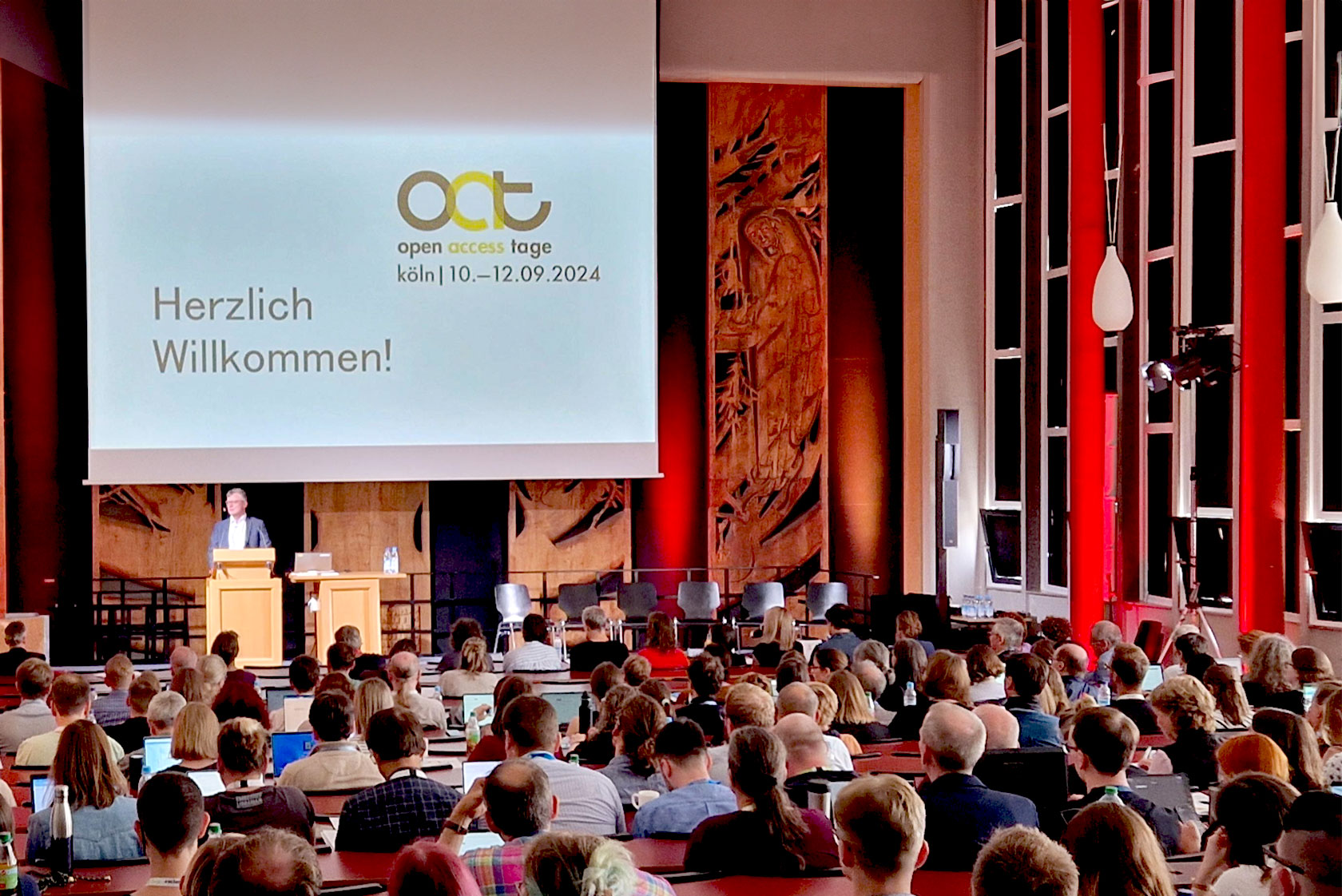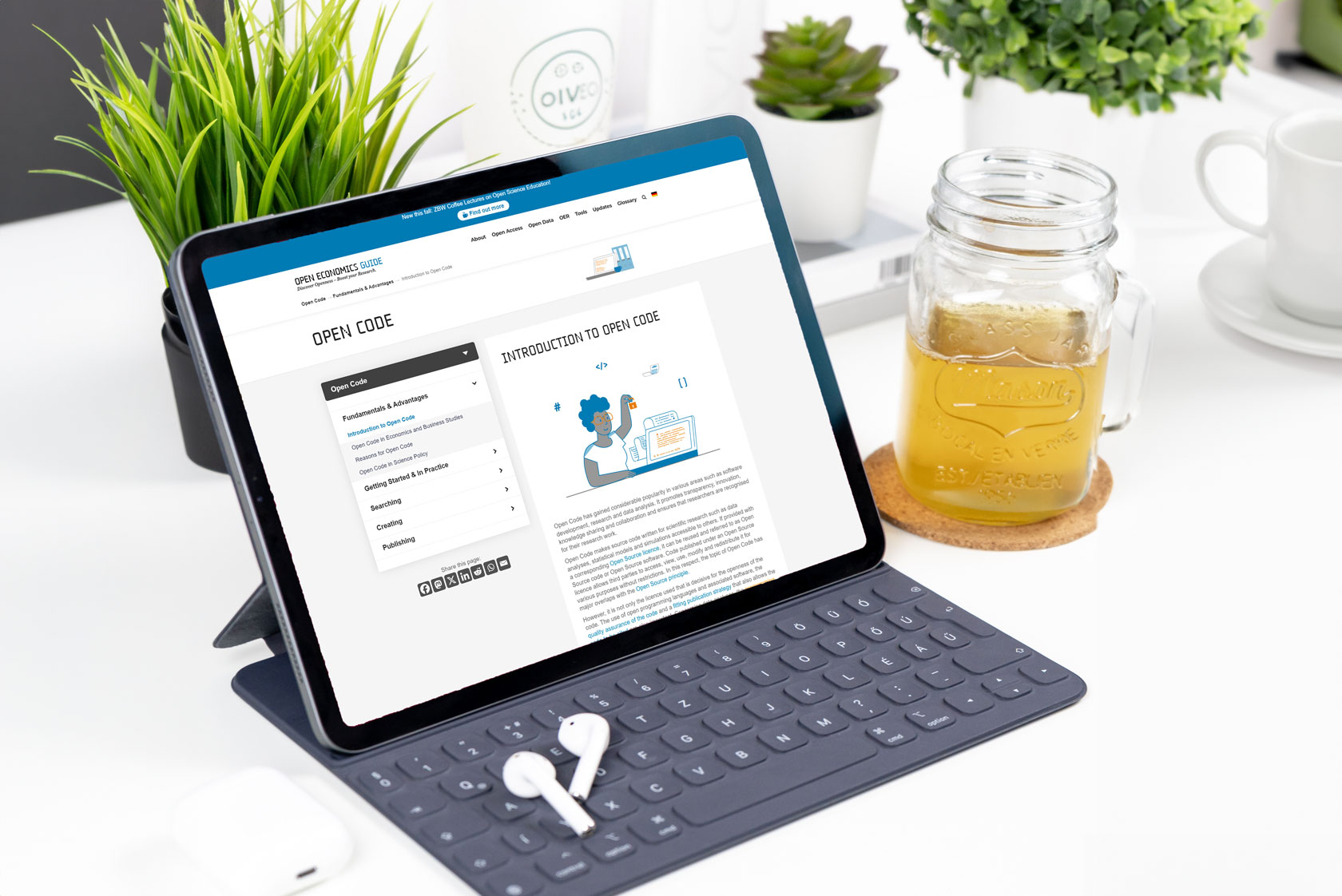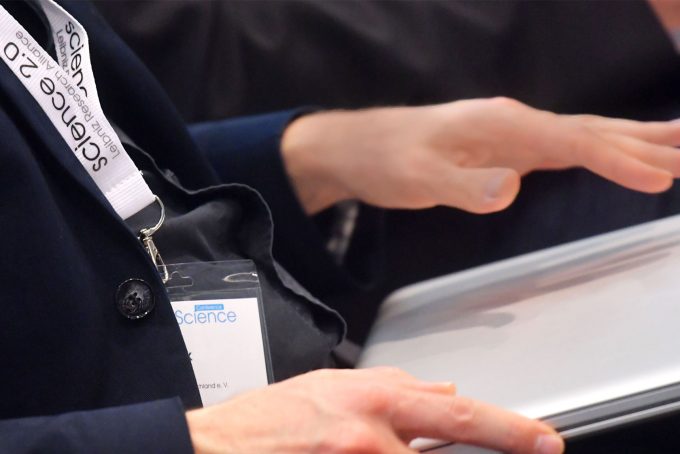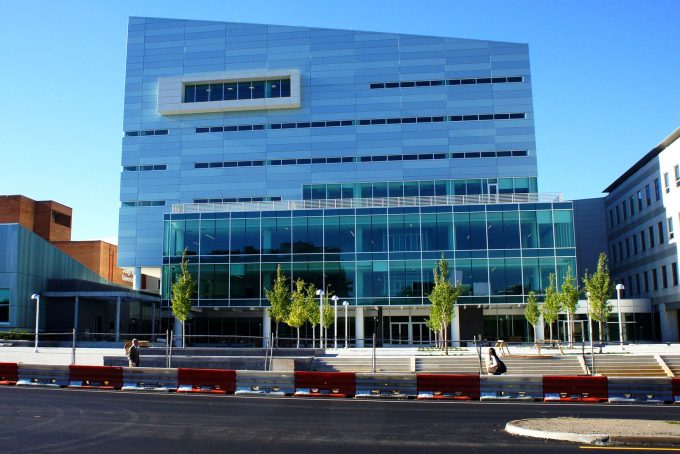
Open Access Days 2024: DEAL, Diamond and Beyond
How the Open Access transformation can be depicted as a wave movement, what a new transformation strategy and networking within the research communities could look like were among the topics of the Open Access Days 2024. In this blog post, we bring some of the conference highlights into focus.
by Ralf Flohr and Olaf Siegert

The Open Access Days (German) took place this year from 10 to 12 September 2024 at the Technical University of Cologne. They were jointly organised by GESIS, the Catholic University of Applied Sciences North Rhine-Westphalia, the Technical University of Cologne, the University and City Library of Cologne and ZB MED – Information Centre for Life Sciences and supported by the German Research Foundation (DFG).
The majority of the lectures, workshops, posters and discussion formats covered the spectrum between transformation contracts on the one hand and non-commercial publication models on the other. The participants included scientists as well as representatives from libraries and other science infrastructure organisations, but also from science policy and publishing houses. For capacity reasons, the number of participants in Cologne was limited to 300 – and was fully booked several weeks before the event began.
Open Access as a ripple effect
In his keynote speech (German), Niels Taubert (Bielefeld University) described the Open Access transformation as a series of wave movements, which he analysed in terms of sovereignty and dependency. In the first wave of transformation, with its focus on institutional repositories, the dependency consisted of the scientists’ limited willingness to participate in self-archiving. This soon led to new objectives, such as integration into research information systems.
The second wave of transformation focussed on gold Open Access journals and the establishment of publication funds. The dependency became apparent when economic interests took precedence over scientific quality in some areas.
Transformation contracts, in particular the DEAL contracts, represented the third wave and led to multiple dependencies, for example on the solvency of the participating organisations, solidarity among the organisations and the achievement of negotiation targets by the consortia.
With Diamond Open Access, the transformation is finally at the beginning of a fourth wave. Taubert presented the results of the Federal Ministry of Education and Research (BMBF) CODRIA project, which included a detailed look at the German Diamond landscape. Although Diamond Open Access is well established, at least in the humanities and social sciences, there is a risk that new dependencies will develop and that the high expectations of science-led Open Access will not be met, according to Taubert.
New transformation strategy
Michaela Voigt (TU Berlin) described in her presentation “Define, identify, promote. Monitoring Fair OA activities” (German) the development of a new transformation strategy at TU Berlin based on the definition of the Fair Open Access Alliance, which focuses on science-led initiatives and projects. Fair Open Access is a more suitable concept for the TU’s strategy than Diamond Open Access. Against the background of rising Open Access costs and the commitment of funds through Publish & Read contracts, especially non-commercial publishing activity should be structurally promoted. Non-profit infrastructures are to be systematically supported in the future. The process for establishing the Fair OA Fund was launched at TU Berlin in January 2024. The University Library is the central player and infrastructure service provider. Part of the strategy is also comprehensive OA monitoring, in which other activities, such as publishing and review activities, are recorded in addition to the publication activities of researchers.
Open Access contributions from the ZBW
The ZBW was also represented in several sessions. As one example, Ralf Toepfer (Deputy Head of the ZBW’s “Electronic Publishing” department) introduced the specialist repository EconStor and the Diamond Open Access support model Open Library Economic. In his presentation “Active networking of the ZBW with economic research in the context of Open Access transformation” he showed a mix of approaches used to address the respective target groups in business studies and economics research.
Juliane Finger was part of the organising team for the workshop: “How can collaboratively organised and financed Diamond Open Access succeed?” The workshop used findings from three ongoing projects (KOALA-AV, ELADOAH, OLEKonsort) to discuss known hurdles to organisational and financial participation in Diamond Open Access and develop possible solutions.
In addition, Olaf Siegert (Open Access Representative at the ZBW) together with the Subject Repositories Focus Group organised the workshop “Subject repositories between technical and organisational professionalisation and networking with their research communities”. Based on the findings of recent studies (such as the COAR Repository Survey (2023) and the Alliance Study on Open Access Infrastructures (2024, German)), best practices for the further development of specialised (and institutional) repositories were discussed in different working groups. The topics ranged from networking with the disciplinary research community, hosting and software to metadata and workflows as well as governance and resource issues.
As a whole, the conference was once again a very worthwhile event with its rich programme (German) and the many opportunities for participation and networking, which showed the growing importance of the topic of Open Access. The next Open Access Days (German) will take place from 17 to 19 September 2025 at the University of Konstanz.
Translation from German (with the support of deepL-Pro).
Ralf Flohr is a scientific employee in the Publication Services Department and Content Manager of EconStor at the ZBW – Leibniz Information Centre for Economics.
Portrait: Ralf Flohr©
Olaf Siegert is head of the Publication Services department at the ZBW – Leibniz Information Center for Economics and is its Open Access Officer. He is also active in various committees and networks on the topic of Open Access, including the Leibniz Association, the Alliance of Science Organizations and LIBER.
Portrait: ZBW©
Featured Image, photographer: Olaf Siegert©
View Comments

Open Code: New Topic Area in the Open Economics Guide
How can Open Code be reused or cited? What can the first steps with Open Code look...



